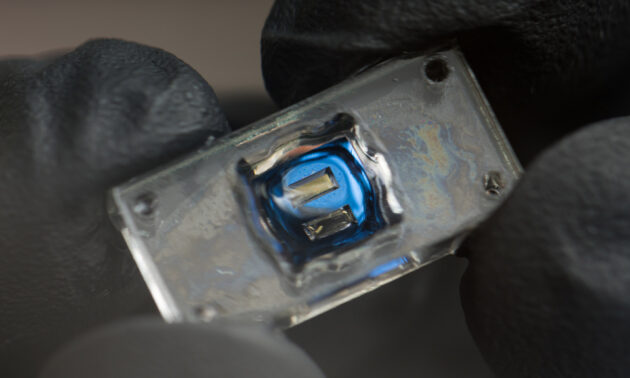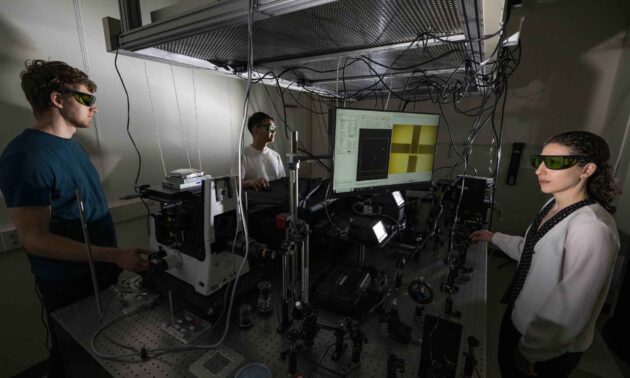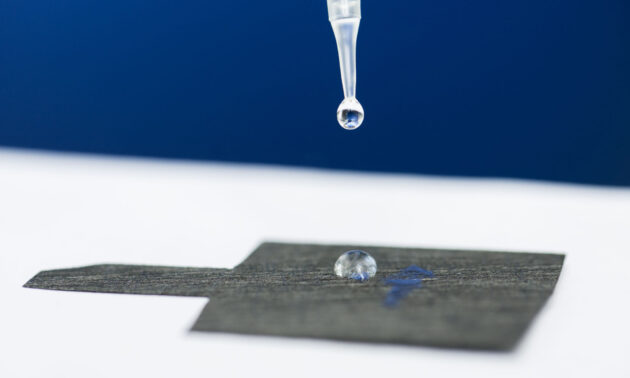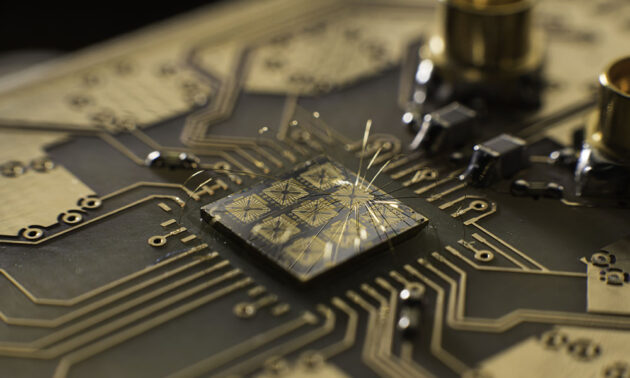Recent News
For more news related to materials science see the University Newscenter.

Remembering Professor James C.M. Li
A beloved member of the Department of Mechanical Engineering faculty who was an iconic figure in the field of materials science has passed away.

Scientists developing microchips with brain and lung tissue to study viral neuroinflammation
Researchers will use tissue-on-chip technology as a new way to explore the relationship between the lungs and brain.

New technique pinpoints nanoscale ‘hot spots’ in electronics to improve their longevity
Rochester engineers have developed a way to spot tiny, overheated components that cause electronics’ performance to degrade.

Harmful ‘forever chemicals’ removed from water with new electrocatalysis method
A novel approach using laser-made nanomaterials made from nonprecious metals could lay the foundation for globally scalable remediation techniques.

New NIH-funded center could soon reduce the need for pharmaceutical trials on animals
Rochester is one of four NIH-sponsored centers that aims to produce tissue-on-chip devices as FDA-qualified drug development tools.

Machine learning boosts search for new materials
Rochester scientists have developed deep-learning models that can sift through the massive amounts of data generated by X-ray diffraction techniques.

Rochester named an REU site for undergraduate semiconductor research
The National Science Foundation has named Rochester as one of six new grant-supported Research Experiences for Undergraduates (REU) sites.
